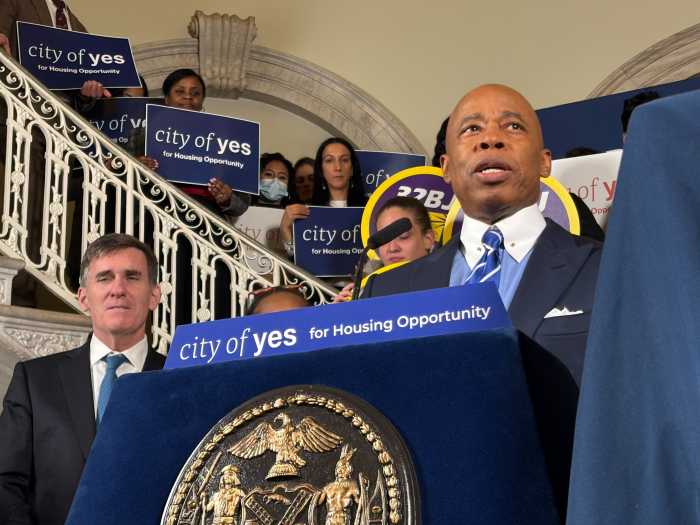The City Charter Commission finalized late Wednesday night the language for a ballot initiative slated to come before voters in November, which could change the voting methods used for municipal elections.
If approved, contests for mayor, public advocate, borough president, city comptroller and City Council would no longer be called for the candidate with a plurality of votes, but abide by a ranked choice system, starting in November of 2021.
Under this system, voters could rank their top five candidates. The individual with the most top designations wins, unless this person failed to capture more than 50 percent of the No. 1 rankings. In such situations, the candidate with the least No. 1 rankings would be eliminated, and voters who preferred that individual would have their vote cast for their second choice. This process would be repeated until one contender captures a majority of votes.
Currently, if a candidate for mayor, comptroller or public advocate does not secure more than 40 percent of the vote, the city holds a runoff between the top two contenders.
Good government groups, such as Common Cause NY, say ranked choice should make elections more transparent and efficient.
“New Yorkers deserve elections that lift up our voices, and push candidates to campaign better. Ranked Choice Voting is the simple solution that puts power back in the hands of the people where it belongs,” Susan Lerner, executive director of Common Cause NY, said in a statement.
City Council Speaker Corey Johnson, who has announced plans to run for mayor in 2021, said the new voting system would be beneficial for New Yorkers.
"Ranked Choice Voting … is the next step in enhancing our democracy and ensuring our city moves in the right direction," Johnson said in a statement.
Mayor Bill de Blasio’s office also did not immediately respond to a request for comment, but in April he expressed reservations about ranked choice voting.
"I grew up with a ranked system in Massachusetts, and in some ways I thought it made sense. But what I don’t know is sort of in the way it’s been used around the country: what happens? Do more people participate? Do fewer people participate?” de Blasio said. “You certainly could argue if name recognition becomes even more central in that kind of system. Folks who have more resources or are more known already could have that advantage.”
Common Cause NY said the ballot initiative would pass if supported by more than 50% of voters in November, and no further approval from the city would be needed.





























